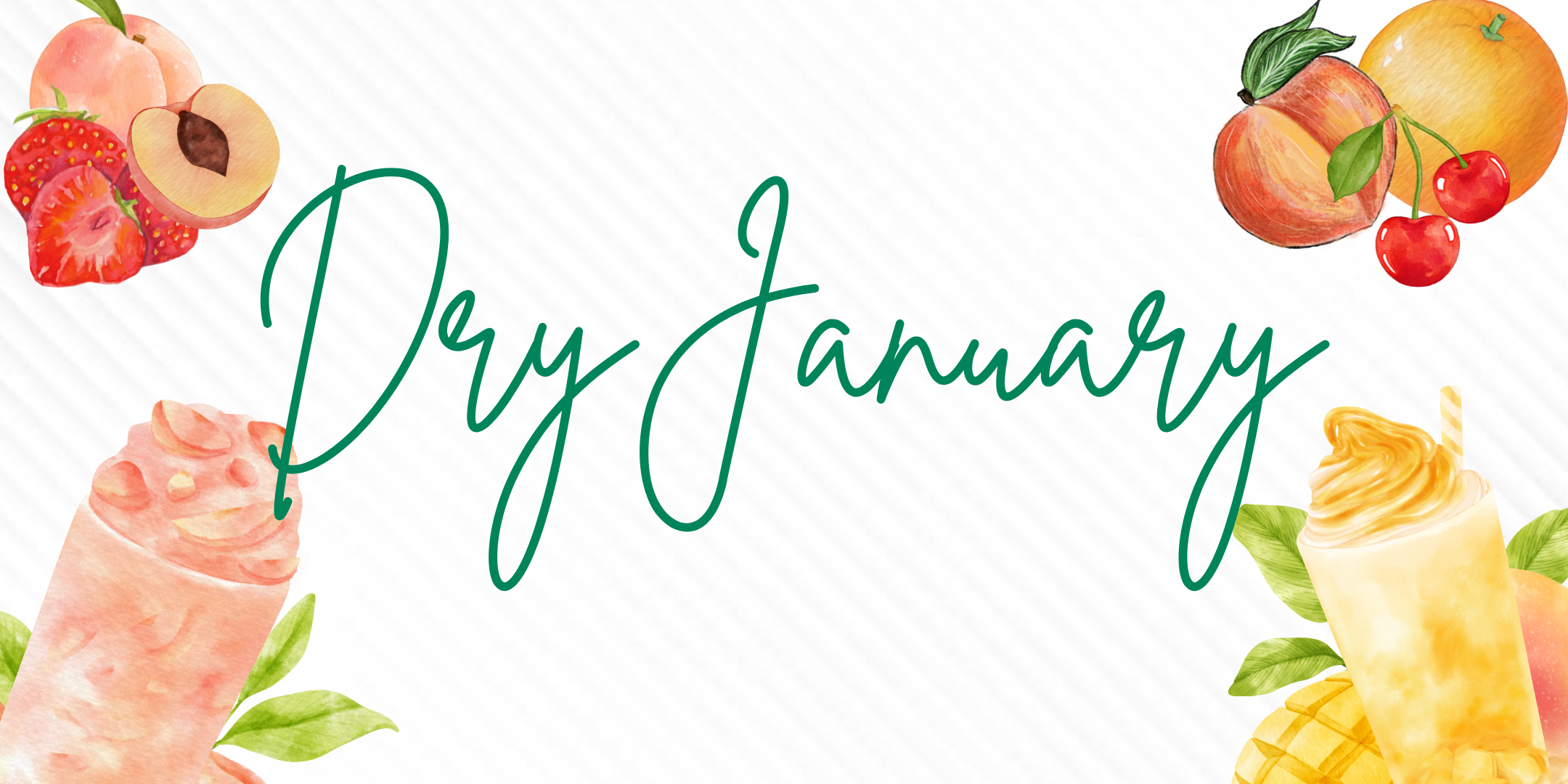Could Dry January start your 2023 off the right way?
Are you feeling low this January? Why not focus on something positive to start off 2023? Dry January is celebrating its 10-year anniversary this year – which means it’s the perfect time for you to participate!
So, what is Dry January – and why bother doing it? A lot of people think Dry January is the month-long hangover that happens when you drink a bit too much over Christmas and New Year’s (and that might be the case for some!), but it is designed as a chance to totally reset the body and mind ready for the new year ahead.
Alcohol Change UK started Dry January 10 years ago to promote a healthier relationship with alcohol across the UK. This year, 1 in 5 people are taking part in Dry January. The movement has grown into an incredible network of support – available in the workplace, the community or on an individual level. Their dedicated team and online services provide all sorts of useful tools, tricks, and tips to help you along the way.
But before you sign up, let’s take a look at the benefits of taking part in Dry January! When they started out, Alcohol Change UK made some big discoveries about the links alcohol has with physical health. Alcohol intake is linked with more than sixty health conditions, including liver disease, high blood pressure, and several types of cancer. So, what effect does Dry January have on this? The British Medical Journal suggested that going alcohol-free for a month lowers blood pressure and cholesterol, reduces the risk of diabetes, and even reduces levels of cancer-related proteins in the blood.
If the physical health benefits aren’t incentive enough, Dry January is also great for your mental health. Alcohol and mental health have been closely linked by medical professionals in the UK. In fact, the UK Government estimates that of the 589,000 people dependent on alcohol in England, a quarter of them are likely to be receiving mental health medication. The medication is mostly to treat anxiety and depression, but a correlation was also found with sleep problems, psychosis, and bipolar disorder.
This is because alcohol is a depressant, which can disrupt the balance of neurotransmitters (chemical messengers) in your brain and affect your feelings, thoughts, and behaviour. This lowers inhibitions and boosts confidence, resulting in what we experience as drunkenness, but as the effects wear off alcohol causes anxiety, irritability, and sadness. Additionally, many people use alcohol as a way of self-medicating for their pre-existing mental health issues, which is very dangerous and only results in a worsening emotional state.
Therefore, cutting alcohol out from your routine results in a range of small benefits to help you get your mental health back in order. Studies have shown links to a brighter mood, deeper sleep, more energy, better concentration – all of which build up an overall healthier mindset, leaving you more equipped to deal with setbacks and obstacles.
Although serious physical and mental health problems need to be treated medically, Dry January is a great place to start thinking about how your habits affect your wellbeing. It may even lead to more long-term decisions – 70% of people who take on the month with Alcohol Change UK’s Try Dry app or coaching emails are still drinking more healthily and have boosted levels of wellbeing.
So, join in on Dry January today – you still have most of the month to start making a difference in 2023! Or why not try going alcohol-free for February or March or even April? There’s never a bad time to start making good decisions for your health!
If you’d like to learn more about mental health and wellbeing, take a look at the Mental Health & Wellbeing Shows free webinars. You can find dates specific to addiction awareness (9th November 2023) or broaden your horizon with mindfulness, financial wellbeing, and workplace mental health. Here is the link: https://mhwshow.co.uk/webinars/
